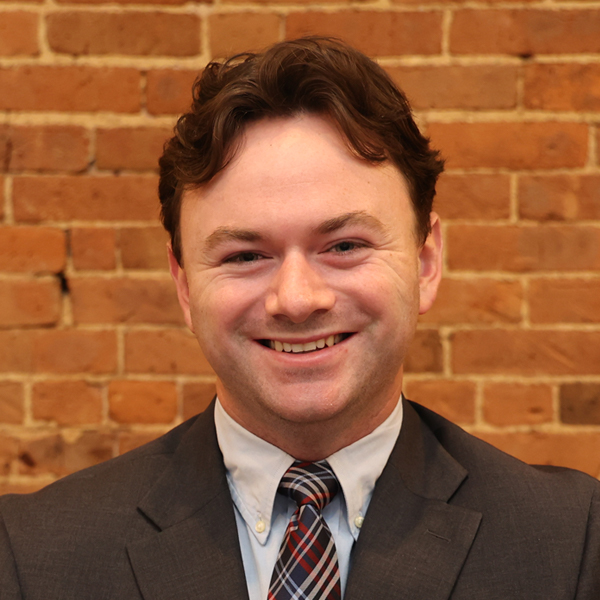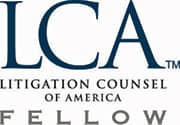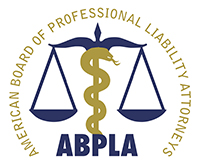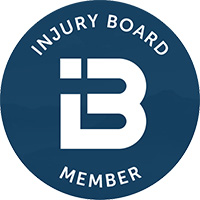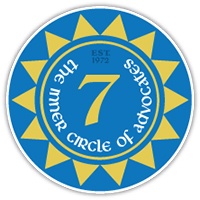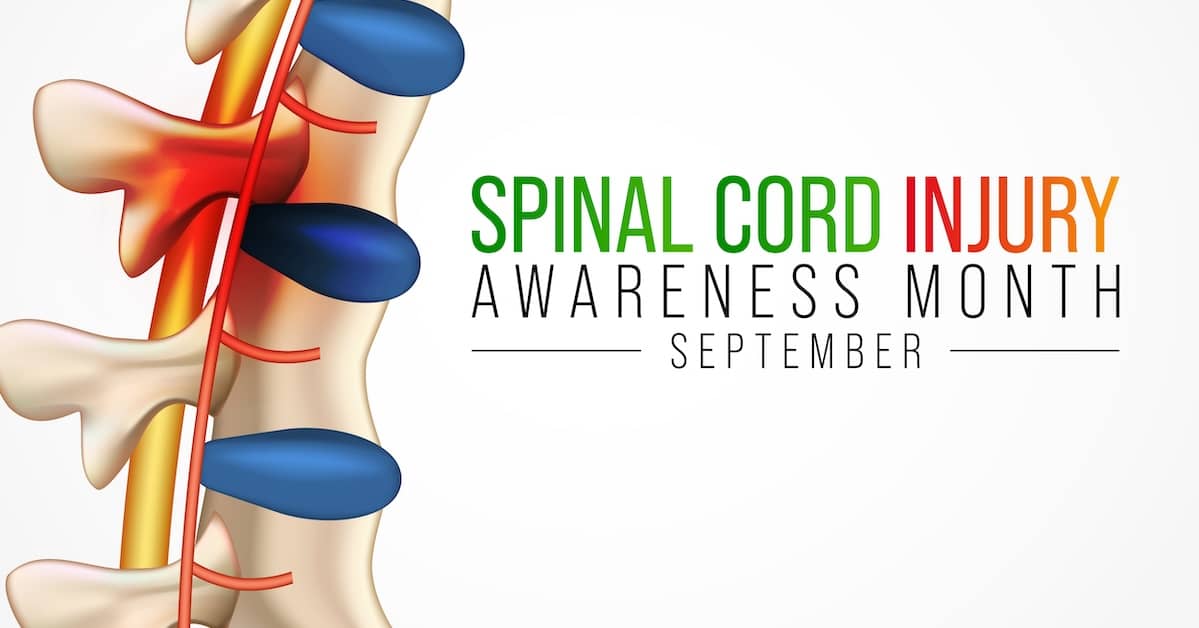
September Is Spinal Cord Injury Awareness Month
September is Spinal Cord Injury (SCI) Awareness Month, a month dedicated to raising awareness about the challenges faced by individuals living with SCI and the importance of ongoing research, treatment, and advocacy. Nearly 18,000 people in the United States sustain a spinal cord injury every year, forcing them to deal with consequences that include:
- Impaired Motor Control
- Loss of Sensation
- Loss of Bowel and Bladder Control
- Body Temperature Dysregulation
- And More
Many people with SCI experience chronic pain as well—along with issues such as depression and anxiety—which can have a profound impact on quality of life.
Designated by U.S. Senate Resolution 533 in 2013, National Spinal Cord Injury Awareness Month is intended to support:
- “Research to find better treatments, more effective therapies, and a cure for paralysis; and
- Clinical trials for new therapies for people living with paralysis.”
Spinal Cord Injury Awareness Month is also intended to provide commendation and support for the “organizations, researchers, doctors and people across the United States that are working to improve the quality of life of people living with paralysis and their families.”
We Support Spinal Cord Injury Awareness. Every Month. Every Day.
As advocates for people who have suffered spinal cord injuries, the attorneys at Mandell, Boisclair & Mandell are here to help victims of SCI seek justice. Our firm has spent close to five decades helping people living with spinal cord injuries in Rhode Island and Massachusetts. We thoroughly investigate accidents involving catastrophic injury to determine liability and take every step to help our clients secure the compensation they deserve.
To schedule a FREE and confidential consultation with one of our Providence SCI attorneys, call Mandell, Boisclair & Mandell at 401-273-8330 today.

What Are the Leading Causes of SCI?
The leading causes of SCI are:
- Motor Vehicle Accidents. Accidents involving cars, trucks, motorcycles, and other motor vehicles are the leading cause of SCI in the United States, accounting for nearly 40% of all cases.
- Falls. Falls, whether from heights, due to a slip or trip, or for any other reason are the second leading cause of SCI. Just over 30% of new cases involve falls.
- Violence. Acts of violence, specifically gunshot and knife wounds, are responsible for just over 10% of spinal cord injuries in the U.S. every year.
- Sports. Impact sports or those with risks, such as diving, are the fourth most common cause of SCI in America, making up around 10% of new cases every year.
- Medical. Botched surgeries and medical mistakes account for almost 5% of new SCI cases in the U.S., making them the fifth leading cause of spinal cord injury.
No matter the cause of SCI, injury to the spine can result in significant physical, emotional, and financial challenges. When your injury is the result of someone else’s negligence, you deserve compensation for these damages.
Determining Liability Following an Accident
When you are involved in an accident that results in serious injury, anyone who played a role must be held to full account. However, determining who is liable for an accident can be a complex and difficult task. Having a spinal cord injury lawyer on your side can help to ensure those responsible for the injury are held equally responsible for the consequences that follow.
Determining liability following an accident often requires a thorough investigation. This may involve working with accident reconstruction experts, analyzing reports and witness statements, reviewing security footage, and taking any other steps deemed necessary to properly establish fault.
With decades of experience conducting comprehensive investigations, the SCI lawyers at our firm have the background and resources needed to identify the cause of your accident. During your no-cost case review, we can discuss this process in greater detail to help you understand how liability is determined for personal injury claims.
What Are the Different Kinds of SCI?
Spinal cord injuries are categorized based on the location and severity of the damage, but are broken into two distinct categories:
- Complete Spinal Cord Injury. A complete SCI results in a total loss of sensation and motor function below the site of the injury.
- Incomplete Spinal Cord Injury. An incomplete SCI means that some function remains below the site of the injury.
The location of a spinal cord injury (cervical, thoracic, lumbar, or sacral) will play a direct role in which functions are impacted. For example, an injury to the cervical spine can impact function and sensation in the arms, legs, and trunk because the cervical spine is above all of these areas. An injury to the sacral spine, on the other hand, is below the arms and trunk so will have no impact there, but can interfere with sensation and function in the legs. However, issues such as a loss of bladder control and sexual function can occur with any type of SCI.
How Long Does It Take to Recover From SCI?
Recovery from spinal cord injury can be a long, complex, painful, and challenging process, though it can vary significantly from person to person. The Mayo Clinic reports that the fastest rate of recovery typically occurs within the first six months following SCI, though improvements may continue for years. It is, however, not always possible to recover after a spinal cord injury.
The SCI recovery process may include medication, surgery, and rehabilitation through physical and occupational therapy. While some individuals will regain certain functions following rehabilitation, others may face permanent changes physically, systemically, and emotionally. In both cases, the expenses following SCI can be immense, making it very important to have resources to cover costs.
Who Will Pay for My Medical Bills?
The financial burden of a spinal cord injury can be overwhelming. Medical bills can pile up quickly and, because working is often impossible during recovery, many victims have difficulties staying financially afloat. Ensuring that you receive fair compensation to cover these costs is one of our firm’s top priorities.
When your SCI is the result of someone else’s negligence, you are entitled to hold them accountable for your injuries and to seek compensation for medical bills through a personal injury lawsuit. There are several variables involved here—such as where the accident took place and any role you may have played—but ideally, the party responsible for your injury will pay for your past, current, and future medical expenses.
More than medical expenses, through a personal injury lawsuit, our SCI lawyers can help you seek compensation for lost wages, assistive technologies (wheelchairs, etc.), home modifications (accessible bathroom fixtures, ramps, etc.), and all other expenses related to your injury. We can also help you seek compensation for the emotional and physical consequences of your injury to help address the tangible damages of pain and suffering. During your free consultation at our Providence office, we will review your damages, assess your claim, and help you understand what your case may be worth.
Our Providence SCI Lawyers Are Here to Help
Spinal Cord Injury Awareness Month asks that we take a moment to understand the financial, physical, and emotional consequences of SCI. At Mandell, Boisclair & Mandell, we do this every day. With nearly 50 years in practice, we have cemented our reputation for compassionate, dedicated, and effective representation, winning awards regionally and nationally, and securing our place among the nation’s best law firms. We understand the profound impact that a spinal cord injury can have on your life, your livelihood, and those you love. We are here to provide the support and tireless legal guidance you need to make the best recovery possible.
To schedule a cost- and obligation-free case review with one of our Providence SCI lawyers this Spinal Cord Injury Awareness Month—or at any time—contact Mandell, Boisclair & Mandell online or call us right away. We welcome SCI clients from Rhode Island and the surrounding areas of Massachusetts.









